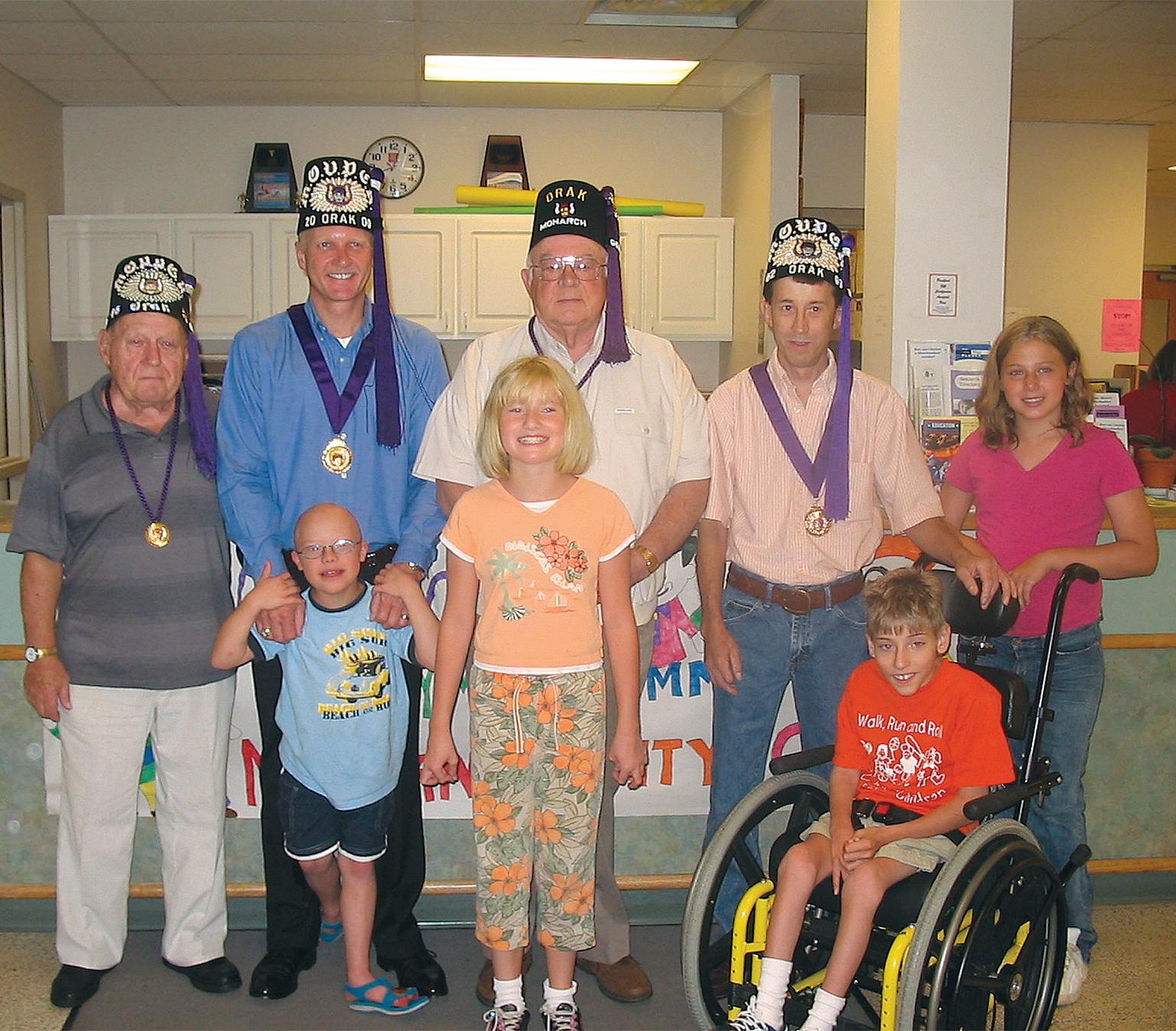




“It is difficult to believe that CARE for Children is celebrating its 100th birthday. Yet, when seeing the smiles on the children of CARE, year after year, it is easy to see how fast a century can elapse,” according to Tyler R. Hannah, President of the Board of Directors. “Lives are touched on a daily basis, and those days, in turn, add up to years’ worth of therapy, learning and intervention to enrich the lives of those very children and our entire community.”
CARE for Children began as an idea that the welfare of children with disabilities should not be left to chance, that an area as large as McKean County should have a formally organized body whose sole purpose was to better the lot of children with disabilities.
In January of 1924, at the request of the Rotary Club of Bradford, the Chamber of Commerce called a joint meeting of civic organizations. In addition to Rotary, the Lions Club, Rotary Club of Kane, Smethport Conupus Club, Bradford Branch of the Commonwealth Humane Society, and the Y’s Men’s Club were all in attendance to discuss a plan to help local “handicapped
children.”
In August 1924, the Rotary Club met to undertake a survey of the conditions of children with disabilities; each Rotarian taking a section of the area. 37 children were identified.
In October 1924, area physicians and surgeons along with nurses from Bradford Hospital screened those identified children. Each child was paired with a Rotarian who helped with transportation to the clinic, identified needs, and monitored ongoing treatment.
In November 1924, an orthopedic surgeon traveled from Philadelphia and in the morning hours of clinic saw 20 patients for further treatment. That same afternoon, 9 patients out of the 20 were operated on at the Bradford Hospital with assistance of local physicians and nurses. Children ranged in age from 3 months to 25 years old.
As the efforts to provide clinics, treatment, and follow up, the Rotary Club formed the Crippled Children’s Committee which was based on the guidelines set forth by the Pennsylvania Society for Crippled Children. Rotary also fundraised amongst its members, other
clubs and individuals to ensure services were ongoing.
Significantly, these first people to concern themselves with the needs of children with disabilities represented three groups in the county; government, the public schools, and the Rotary Clubs. These same three groups continued to provide most of the guidance, support, and services for children with disabilities in McKean County throughout those early years. At an historic meeting in July 1929, it was decided to proceed with a county-wide society, and that membership in the society should be limited to Rotarians in McKean County. Accordingly, on August 14, 1929, the Society was officially founded. The Society was officially incorporated as a public charity/ membership organization in January of 1930.
The new Society’s only tangible property consisted of a sheet of paper containing the names of 79 children with disabilities who needed help. There was no money in the bank, no office help, no nurse- not even a desk, a file or a typewriter.
Nevertheless, at its first meeting in 1930, the new Board
of Directors voted to conduct a children’s clinic sometime in the month of January. Operations were on a very modest budget for the first year. Receipts (all from the Bradford and Kane Rotary Clubs) totaled $850.50, while expenditures were $774.17.
Toward the latter part of 1930, it was realized that immediate attention must be given to raising funds. The idea that only Rotarians from Bradford, Kane, Smethport, and Port Allegany should be members of the new organization was soon abandoned, and other civic groups were invited to participate. Individual memberships at $1.00 or more per year were authorized in 1931 and this remained the principle way of raising operating funds.
October 1st, 1930, a full-time nurse was hired to oversee the work of the Society. Her duties included organizing and administering the clinics; ensuring children made it to their assigned hospitals for operations and/ or treatment, and making home visits. The headquarters was in the Bradford Supply Company Building at 130 Main Street in
Bradford. Throughout the 1930’s, clinics were held 6-7 times per year. The Society did a lot of fundraising, led by Rotary Clubs, including membership drives. Early efforts to raise money included raffles, entertainment, and home talent shows. The basic membership campaign began to emerge as the primary way of funding the Society’s work. An additional source of income was developed in 1939, when memorial cards were sold, which in their first year netted almost 10% of the total budget. In the 1940’s, affiliations were established with Zem Zem Hospital (now Shriners Hospital, Erie, PA), Hamot Hospital, Erie PA and Buffalo Children’s Hospital, among others. A Cerebral Palsy School was started in 1946 in the basement of Fourth Ward School with ten children in attendance. In 1949, an equipment loan closet was established to lend wheelchairs, crutches and other equipment to families in need.
In 1949, Lena Graham Griffin was hired as an orthopedic nurse, and in 1950 was named executive secretary.
During her
leadership at the Society, she witnessed many changes in the treatment of children with disabilities, as it was the era of polio, heavy braces, iron lungs, and segregation in schools and the community.
With the emergence of polio in the United States in the late 1940s, the society had its first post- polio clinic in June of 1950. The society began offering speech services at the Cerebral Palsy School in the mid 1950’s. The Smethport Rotary hosted its first Christmas Party for children with disabilities at the Colonial Hotel with 16 children in attendance. During the 1950’s, clinics were at the Bradford Hospital State Room, the Masonic Lodge in Port Allegany and the State Clinic in Kane.
In September 1963, the Society applied for funding through the Bradford United Fund in an effort to support the United Way concept. Just a short time later, the Society was included in the Kane Area United Way, Port Allegany United Fund and Smethport United Way (formerly Smethport Community Chest).
In 1968, the McKean County Society became
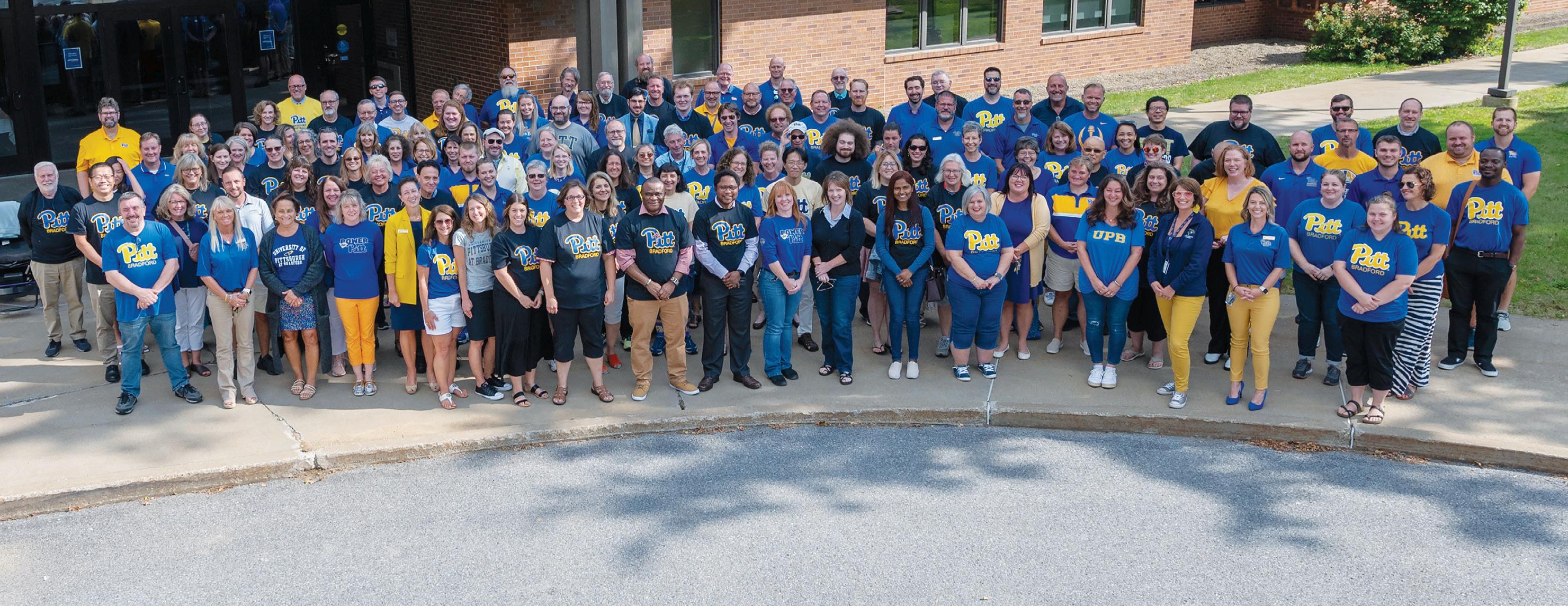

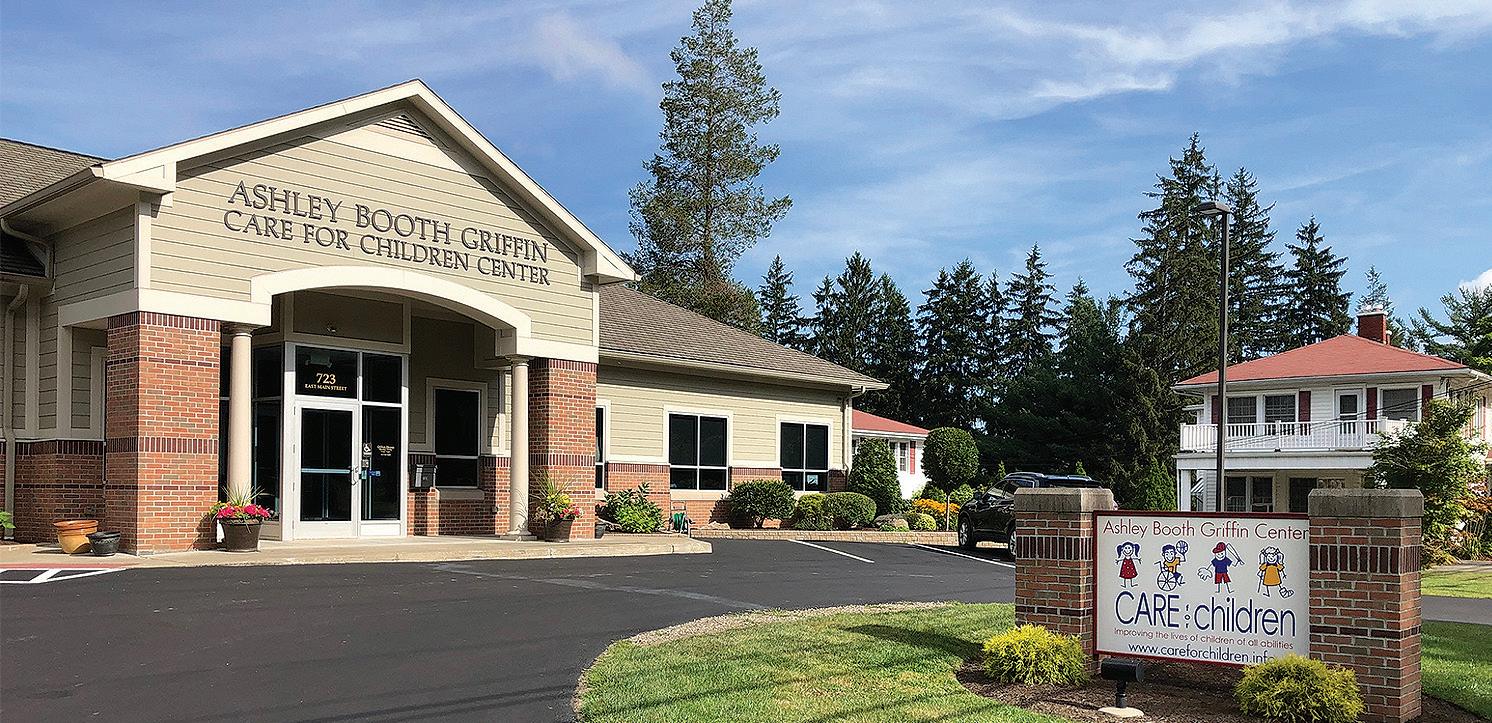
During its strategic planning session in 2007, the board of directors identified the purchase or lease of a facility which would increase the visibility of the organization and provide a Community Center for Children of All Abilities’ as a strategic initiative.
Through the purchase or construction of a new facility, the goal was for CARE to better support and expand the mission.
In 2009, CARE for Children purchased land at 723 East Main Street in Bradford.
Under the direction of the CARE for Children Board of Directors and architectural firm R.W. Larson & Associates, Rick Larson, principal architect, CARE began planning its new home.
On May 7th, 2012,
CARE for Children launched the public phase of its ‘Building Campaign for the Future of Children of All Abilities’ to support the construction of the organization’s nearly10,000 squarefoot facility at 723 East Main Street in Bradford, Pennsylvania. The organization asked the community to come together and “Help CARE Grow!” With a lead gift of $1,000,000 from Zippo Manufacturing Company, Owner and Chairman of the Board, George Duke secured the naming rights of the facility, which is named for Ashley Booth Griffin, who tragically lost her life in an automobile accident in 2008. Calling it a “divine inspiration”, Mr. Duke
saw this as the perfect opportunity to bring attention to CARE, and to honor Ashley’s memory.
Ashley’s parents, Zippo President and Chief Executive Officer, Greg Booth and his wife Cherie, were “floored, thrilled, blessed beyond comprehension that something like this would come out of the tragedy of losing our beautiful Ashley” and they take great comfort in knowing that her daughters, Jaden and Tayga, will proudly remember their “mommy” through the facility that bears her name and serves children such as themselves.
Over 500 donors contributed to the Capital Campaignraising a little over $2

million dollars. The remaining mortgage was paid in full in January 2018. The new facility officially broke ground on June, 25th, 2012 with the overarching goal for the center to better support services and allow for future expansion of services; emphasize service delivery by CARE’s commitment to pediatric program expansion and accessibility; and strengthen the identity of the organization by making it a constant presence and enduring asset for the entire community. More than just a permanent home for CARE, the Ashley Booth Griffin CARE for Children Center’s purpose is to meet the ever-changing treatment needs for children and
their families. Bob Cummins Construction was awarded the project with a low bid. Nick Cummins provided project management for Cummins. Building Committee Chair, Joe Yaros; the late Pete Buchheit, former Facilities Manager at the University of Pittsburgh Bradford (community volunteer); the Building Committee members; and Executive Director, Tina Martin provided project oversight on behalf of CARE for Children. The construction took approximately 10 months with few delays. The official dedication was bookended by a reception on Thursday evening, May 16th, attended by 160 donors and
supporters, who were treated to tours of the new building. A special children’s dedication, attended by 69 children and 52 adults, was held on Saturday, May 18th and featured crafts, games, an obstacle course, a clown, and giveaways of safety items such as bike helmets and reflectors.
At the dedication Board President, Mick Marshall stated: “The completion of the Ashley Booth Griffin CARE for Children Center is not the culmination of our goals but the beginning of a new era at CARE.”
The Ashley Booth Griffin CARE for Children Center marked its 10th Anniversary in May 2023.
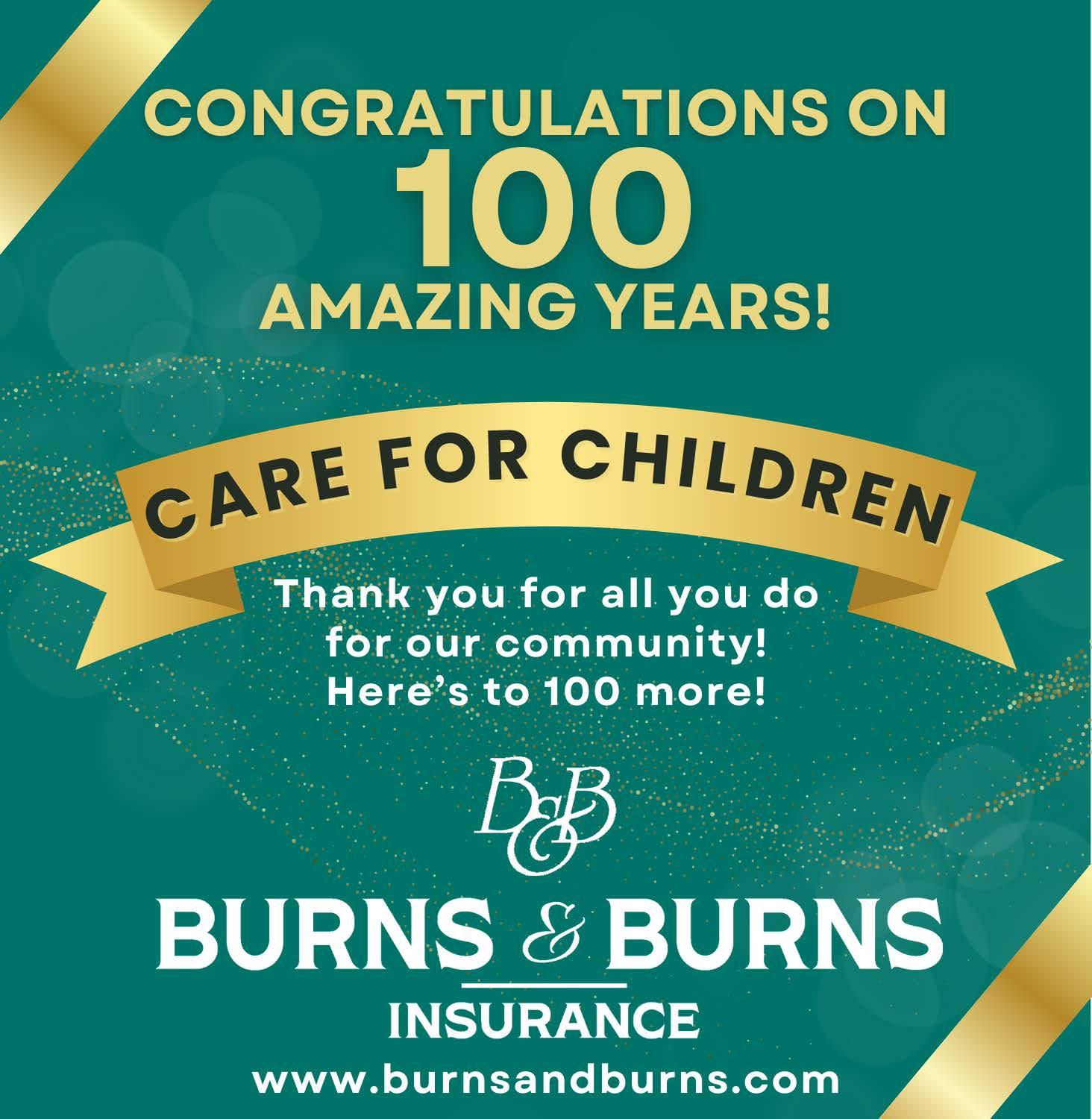
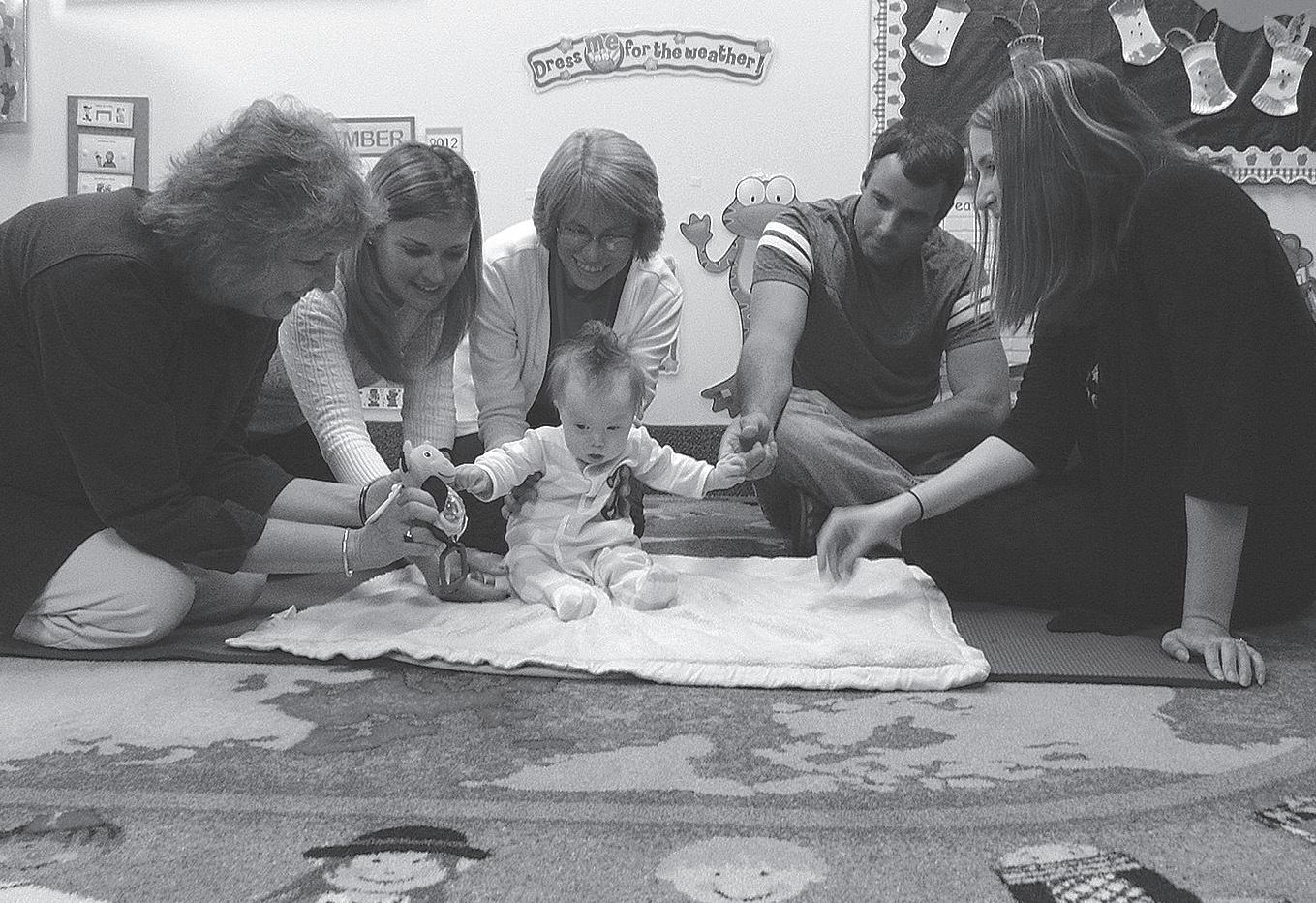
CARE for Children
Rainbow Corner Preschool provides early learning programming for students aged 3-5 and a Developmental Playgroup for children 24 to 42 months.
CARE for Children, a long-standing provider of Early Intervention Services, School-based therapy, and therapeutic recreation, works to raise awareness that early treatment for infants, toddlers and school-age students provides needed supports in the most critical learning years; and provides an important safety net for children of all abilities.
Early Intervention (EI) services focus on skills that babies and toddlers typically develop during the first three years of life but because of a developmental delay or disability the child is not meeting certain developmental benchmarks that may include cognitive difficulties, physical delays, and/or social/ emotional, self-help, or communication skills that are not at age level.
According to the American Academy of Pediatrics “as many as 1 in 4 children are at risk for developmental delay, and universal early childhood screening provides an opportunity to identify delays early and intervene during the most critical period of development.”
If you know a child who is having difficulty walking, talking or reaching other milestones, please contact CARE for Children at 814-3624621 or The McKean County Infant/Toddler Early Intervention office at 8149751221. Information for other counties can be found by calling the CONNECT Help Line at 1-800-692-7288.
This is a nationwide hotline that can connect parents to their county’s Early Intervention office.
School-based therapy services provide children with delays and disabilities improved access to
education. Therapists work with the school team and families to meet the unique developmental and adaptive needs of each student receiving treatment. Depending on a student’s individual needs, services may only be required for a specific duration. Typically, the earlier a child receives services at school the better the outcome.
As the American Occupational Therapy Association notes, a school-based therapist focuses on improving “the student’s ability to fully access and be successful in the learning environment.”
Therapeutic recreation programs at CARE are an extension of traditional therapy services. Recreation programs promote cardiovascular fitness and improved strength, balance, muscle control and coordination. Some programs focus on fine motor skills like arts and crafts.
Gretchen Daugherty, parent of a child who receives school-based services notes, “CARE’s recreation programs have been instrumental in Gavin’s growth with his fine motor skills, socialization, confidence, and independence. Over the years, CARE has offered so many opportunities for him while providing support, encouragement, and happiness. We are thankful to have an agency like CARE that supports kids of all abilities and helps them grow to be the best they can be.”
“At CARE, we find that recreation programs help build rapport between the CARE staff, children who participate, and the family members in attendance,” said Tina Martin, executive director. “In addition, to promoting inclusion,


wellness and positive self-esteem- these programs are fun and help build friendships.”
CARE for Children therapists are also active providing developmental screenings, including screenings for children entering Kindergarten; Middle School Scoliosis Screenings; and birth to three Ages & Stages Screenings to help identify children that may need EI services.
“CARE for Children is committed to providing therapy, instructional and social work services to local children,” said Ashley Carlson, MOT, OTR/L, director of pediatric therapy services at CARE.
“We work closely with the counties, schools, families and other stake holders to ensure children with delays are screened, evaluated, treated and have positive outcomes.”
Pediatric Therapy Services provide an important keystone in CARE’s umbrella of services as well as a vital foundation for the children and families CARE for Children serves.
The preschool works with the Bradford Area School District to ensure the program is aligned with the district’s curriculum to provide students a smooth transition to Pre-K or Kindergarten and that content area meets or exceeds Pennsylvania Early Learning Standards.
“Quality early childhood education is essential to the development of young children,” said Kimberly Engstrom, M.Ed., preschool director. “Studies show that children who complete preschool programs were significantly more advanced in key areas of development, including language and literacy, creativity, music and movement, initiative and social skills. A child’s ability to pay attention, stay focused and follow directions emerges in these early years, and structured early learning fosters these abilities for later success in school and life.”
According to studies, an investment in Early Learning has far reaching, evidence-based consequences for participating students, which may include: better health outcomes; lower criminal justice costs; increased selfsufficiency; increased productivity; higher likelihood to









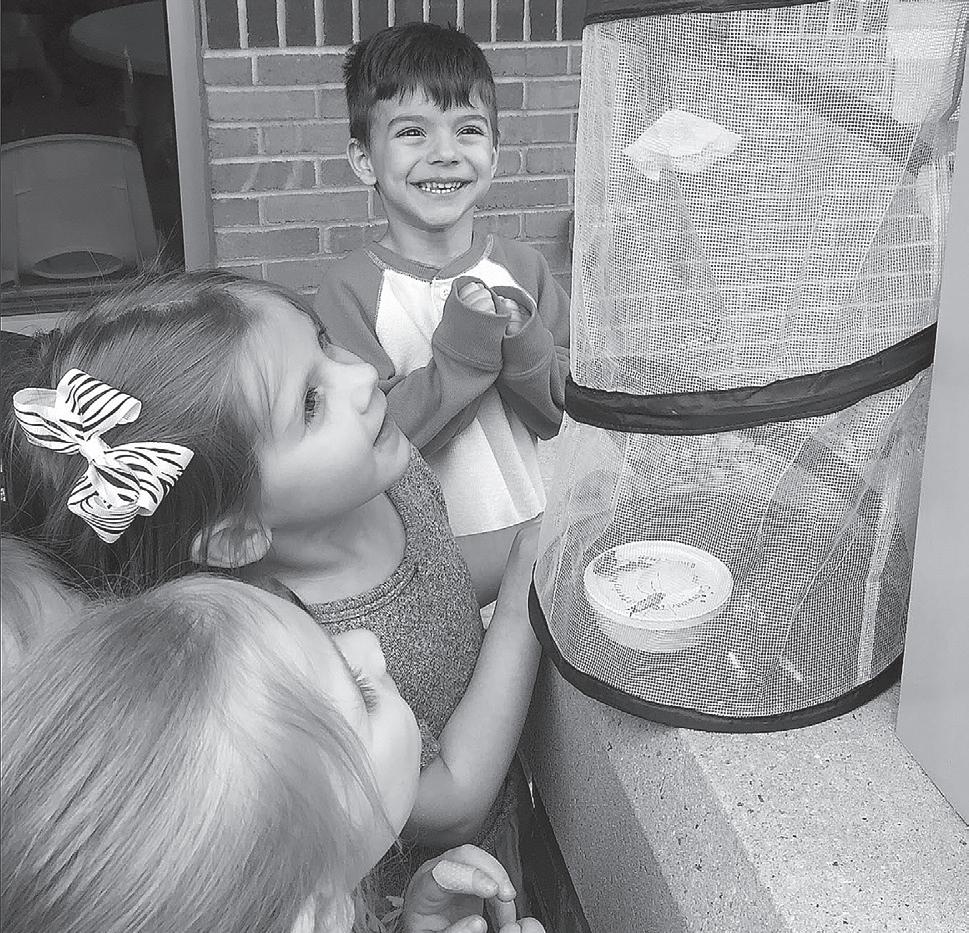
graduate from high school; more likely to own their own homes; have longer marriages; less likely to repeat grades; less likely to need special education; and are less likely to become chronic lawbreakers.
The preschool has been in operation in some format for close to 75 years. The program was originally started as a Cerebral



Palsy School, later as a therapeutic playgroup for children with disabilities, then a nursery school for children with disabilities which helped the students prepare for main stream school. For the last 35 years, Rainbow Corner has provided an inclusive setting for both typical children and children with developmental delays.


























































In 2006, CARE identified the need for an organized, concentrated effort to reduce accidental childhood injuries, disabilities and fatalities in our region; and later that year went through the process to start a Safe Kids chapter which later grew into the Safe Kids PennsylvaniaMcKean County Partnership.
Safe Kids initiatives are led by an advisory group consisting of representatives from CARE for Children, community organizations, and volunteers. Through its leadership of the program, CARE provides managerial and fiscal oversight and support. Funding is provided by the United Way of the Bradford Area, Inc., (including the Port Allegany and Smethport Campaigns), the Kane United Fund, community and individual donors, the proceeds from fundraisers, and designated income for child safety and injury prevention from the





CARE for Children Trust.
In 2022-2023 the Safe Kids PennsylvaniaMcKean County Partnership impacted 2,417 children and adults and provided 4,171 safety items. The Safe Kids PennsylvaniaMcKean County Partnership has several ongoing safety programs for families, including:
• Home Safety (Childproofing, Fire Safety, Poison Prevention, and Fire Arms Safety)
• Bike and Helmet Safety (McKean County Kindergarten Bike & Helmet Program)
• Car Seat Safety
• Water Safety targeted to children birth to age 5
• Safe Sleep with the leadership of the McKean County Cribs for Kids® Program Families in need of safety items or information can contact CARE at 814-362-4621; via email: reception@ careforchildren.info; or visit CARE’s website at https://careforchildren. info/what-wedo/childsafety/.
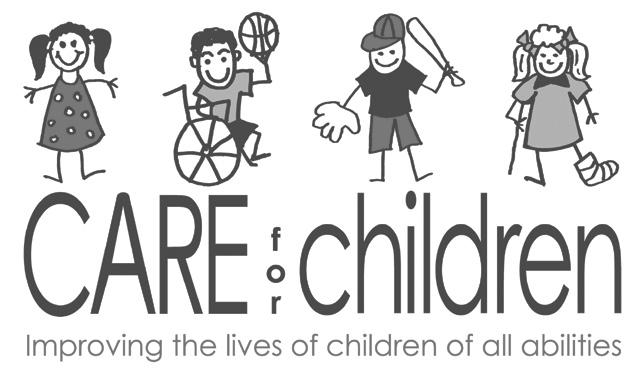











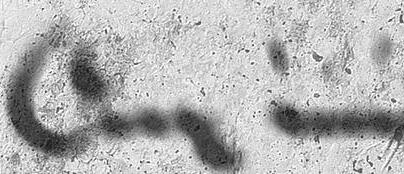




























affiliated with the Pennsylvania Easter Seal Society. With the services, such as an employee pension program, camping programs, educational programs and guidelines available through the State and National organizations, came the responsibility of a name change and meeting standards. The McKean County Society for Crippled Children became the McKean County Easter Seal Society.
In November of 1969, Anna Confer, RN, was hired to replace Mrs. Griffin after her retirement in January of 1970. During the 1960s and 1970s, a swimming program and bowling program were added to the other special events attended by the children in the program. These programs have provided the foundation for CARE’s current therapeutic recreation program.
In the 1970’s, the Nursery School program was moved to The Church of Christ on Derrick Road and clinics were held at the
State Room offices on North Bennett Street in Bradford, PA. The organization advocated for community accessibility of curbs and sidewalks and started a special program to provide disabled parking permits for those without a special license plate.
In 1974, the first scoliosis screenings were held at the Bradford Area School District for 7th , 8th , and 9th grade students. 1,064 students were screened and 51 were referred for further evaluation.
In 1985, after 42 years of providing services from the I.O.O.F. Building (now the Seneca Building) the organization relocated to the first floor of 20 School Street and a quarterly newsletter was started.
Later in 1986, they made the move to 669 East Main Street (now the site of Valu Home Center Plaza). The space was renovated to make it totally accessible.
In 1988, Rainbow



Corner Preschool was formally established and licensed for 30 students through the PA Department of Education.
In November 1991, the organization moved to the Habgood Building owned by the Office of Economic & Community Development where they would lease space for the next 21 years.
In 1994, in order to reduce expenses, Easter Seal created districts within the state instead of maintaining the county relationship. Just prior to this districting project, the McKean County chapter had paid as much as $10,000 in annual dues to Easter Seal which reduced available benefits to the county.
At this point, the McKean County Society elected to disaffiliate with Easter Seal as did many other counties in Pennsylvania.
According to the board at the time, “We felt we could not survive this organizational change by Easter Seal. We reverted to our original designation as McKean County Society for Crippled Children.” With the negative connotations of the word “crippled,” it was not an appropriate term
to use in the name of such an organization.
In the words of one parent, “The word sounds so definite and without hope. This agency gives hope to parents! Your name should reflect that.” The board of directors, with community input, decided on a more positive and upbeat name for the agency. Each letter in the name CARE represented a service: Consultation, Adaptation, Rehabilitation and Education.
Mrs. Confer retired in December 1999 and Ann Ambuske, LCSW, was hired as Executive Director. Under Ambuske’s leadership, the board adopted up-to-date policies and procedures, established a computer system for financial operations and record-keeping, and hired Tina Martin as Community Relations Director to establish a fundraising and development program. Mrs. Ambuske left the organization in January 2002.
In March of 2002, Ann Feightner was named executive director. She, along with the board of directors, spearheaded the adoption of a new mission statement to reflect an active culture
of inclusion: CARE for Children is a nonprofit organization dedicated to improving the lives of children of all abilities. In 2003, McKean County CARE for Children officially changed its name to CARE for Children to reflect the organization & ever-expanding demographics and to reflect that service is available to children in the surrounding areas. Feightner was instrumental in branding the new name and new mission.
In November 2002, the board of directors and membership of the organization voted to amend both the certificate of incorporation and the bylaws to remove the provisions regarding membership and provide for governance only by the board of directors.
In 2004, Feightner oversaw the organization obtaining the prestigious Seal of Excellence from the Pennsylvania Association from Nonprofit Organizations (PANO) Standards for Excellence Program. It was a two-year project in which she led the board and staff in adopting policies, procedures and best practices to meet the rigors of the program. Under Feightner’s direction, Early Intervention Special Instruction (2002); Occupational Therapy (2003); and Family Support Services (2005) were added. Feightner left CARE in March 2006 and Martin succeeded her as Executive Director.
Some highlights over the past 22 years: In December 2006, CARE was established as the lead agency for Safe Kids McKean County and undertook establishing a network of child safety and injury prevention programs, countywide.
In 2008, CARE
began offering Early Intervention services in Warren County.
In 2009, CARE began offering Early Intervention in Potter County.
In 2012, after 87 years of providing Orthopedic Clinics, with the most recent partnership being Shriners Hospital, Erie PA with Dr. Karl Frankovitch, M.D. attending, the last clinic was held in Bradford. That year Shriners Hospital began accepting private insurance and ceased utilizing rural outreach sites.
In 2013, the Ashley Booth Griffin CARE for Children Center, located at 723 East Main Street, Bradford, was dedicated, providing a permanent home for the organization.
In 2013, CARE permanently established Speech and Language Services to its roster of services.
In 2015, CARE hired a licensed social worker to provide services.
In 2019, CARE took over the management of McKean County Cribs for Kids.
“Since its inception in 1924, CARE for Children has helped children; and had remarkable growth while remaining completely focused on being mission-driven,” said Karen Gelston, past board president. “CARE has remained true to the idea that the welfare of local children should not be left to chance, honoring the commitment of all those citizens who founded the organization and nurtured its mission of improving the lives of children of all abilities for the last 100 years.”
(Sources: A History of the Crippled Children Society by, R.B. Bromeley; The Bradford Era; The Landmark Society; and CARE for Children)



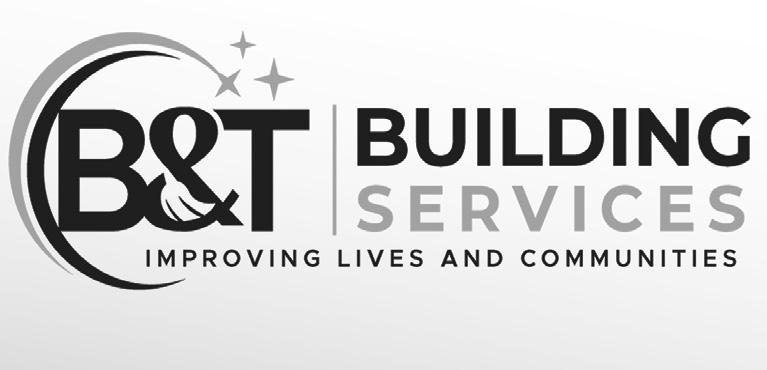









































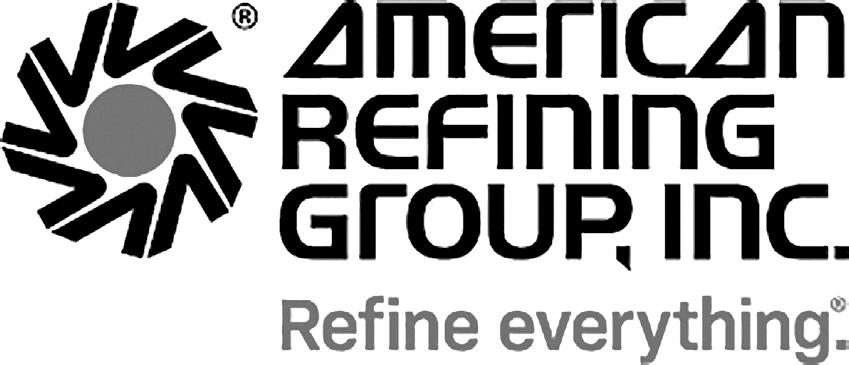











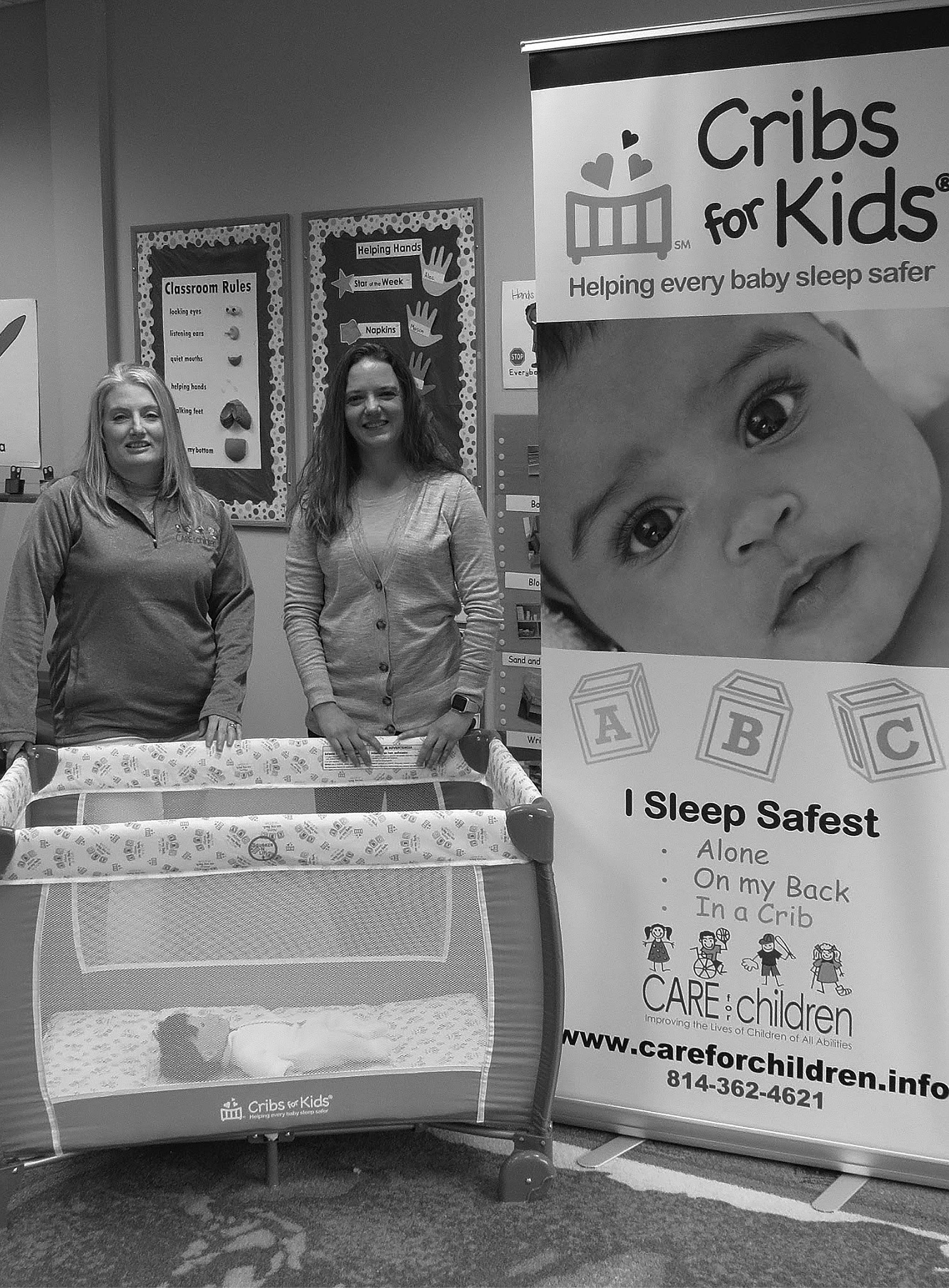
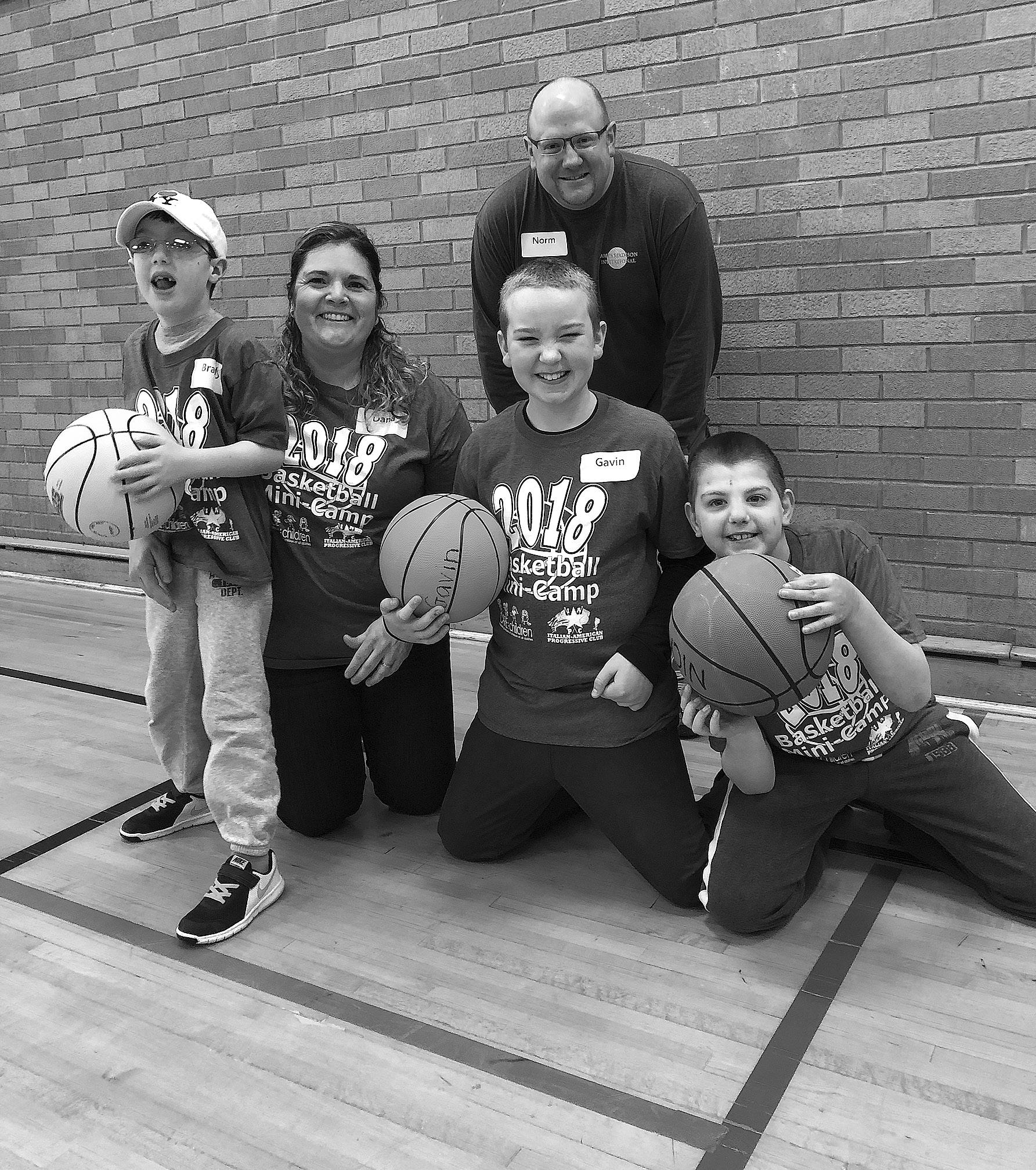


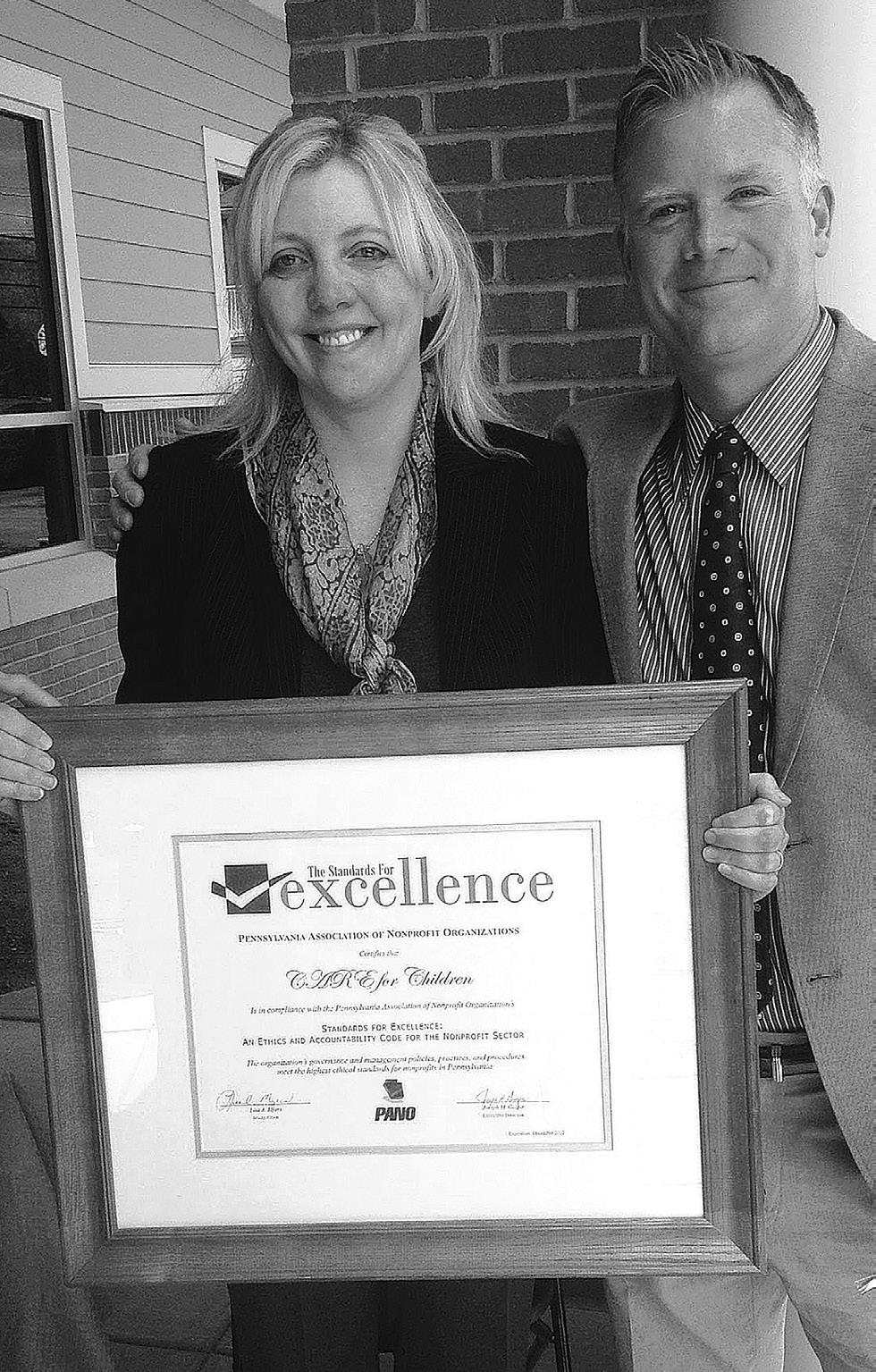
Tyler R. Hannah, President
Anne M. Hardy, Vice President
Joseph Yaros, Treasurer
Thomas E. Ball, Secretary
Greg Booth
Alla Marie ‘Bunny’ Comilla
Karen Gelston
Fred Graham
Richard S. Johnson
Lynne Kuntz
Joseph Lashway
Mick Marshall
Deborah Price
Norm Strotman


CARE for Children has been a recipient of the Pennsylvania Association of Nonprofit Organizations’ Seal of Excellence for successfully completing their rigorous Standards for Excellence ® accreditation program for 20 years. CARE was first awarded the Seal of Excellence in 2004, and was re-accredited in 2007, 2013, 2017 and most recently in December 2022. Former Executive Director, Ann Feightner, was instrumental in CARE’s participation in the Standards Program and its first accreditation in 2004. She had previously participated in the program while working for a non-profit in Maryland.
Tyler R. Hannah, president of CARE for Children’s Board of Directors commented, “CARE is extremely proud of this accreditation and distinction. Along with our Board of Directors, our staff’s hard work proves that CARE operates at maximum efficiency in order to have a maximum impact on our mission of improving the lives of children of all abilities.”
CARE for Children voluntarily opens itself up to analysis by a “jury of its peers.” The peer review team examines
CARE for compliance with the Standards for Excellence ® : An Ethics and Accountability Code for the Nonprofit Sector, in areas including: Mission, Strategy and Evaluation; Leadership: Board, Staff, and Volunteers; Legal Compliance and Ethics; Finance and Operations; Resource Development; and Public Awareness, Engagement, and Advocacy.
PANO evaluates fundamental values such as honesty, integrity, fairness, respect, trust, responsibility, and accountability, all of which are inherently important in the nonprofit world.
CARE’s programs and services, management, fundraising and financial practices were subjected to in-depth examination prior to earning each accreditation.
“The process and accreditation demonstrate ethical transparency, organizational sustainability and adherence to best practices,” says Karen Gelston, CARE board member and chair of the Policy and Personnel Committee.
CARE for Children is the only accredited organization in McKean County.




















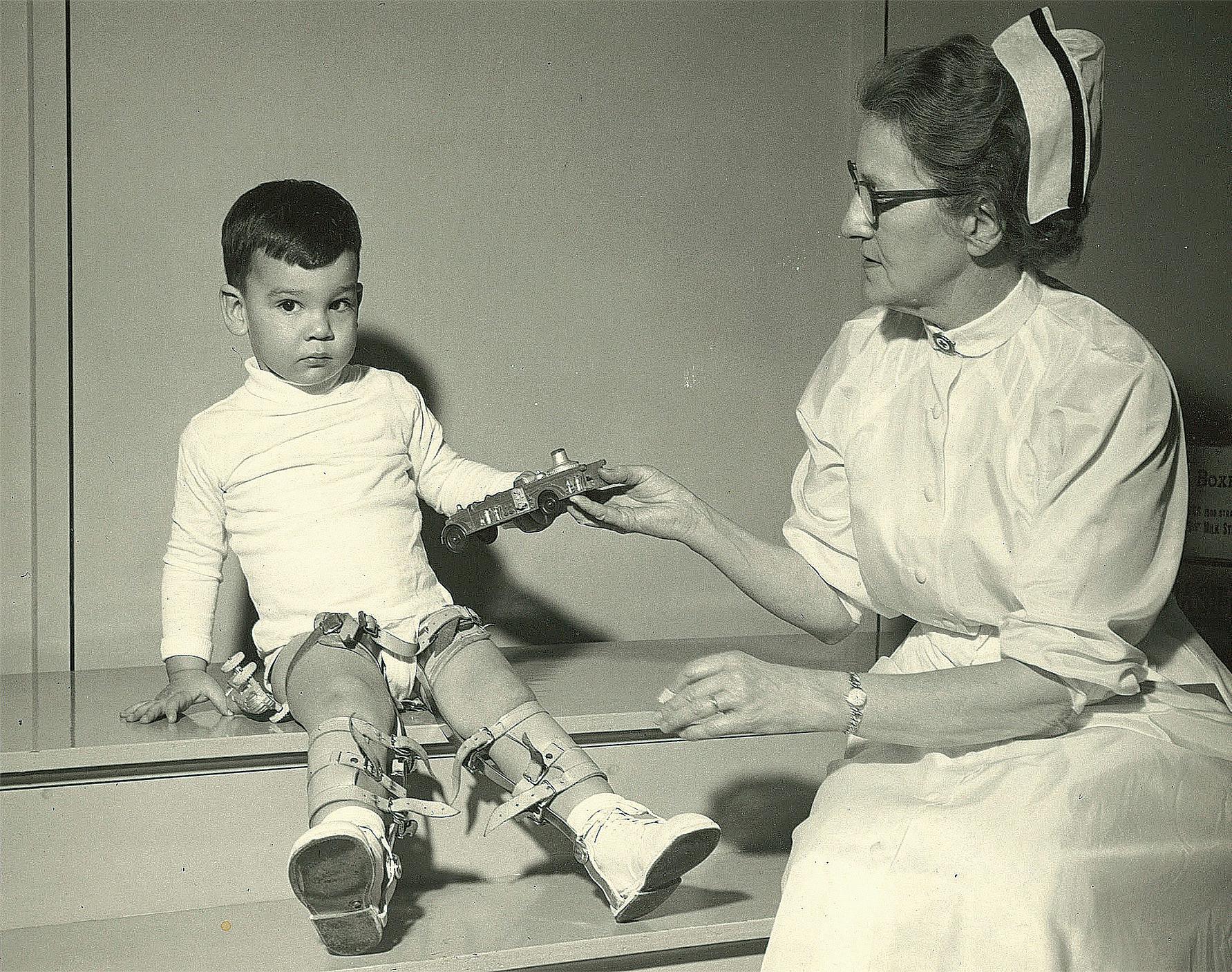

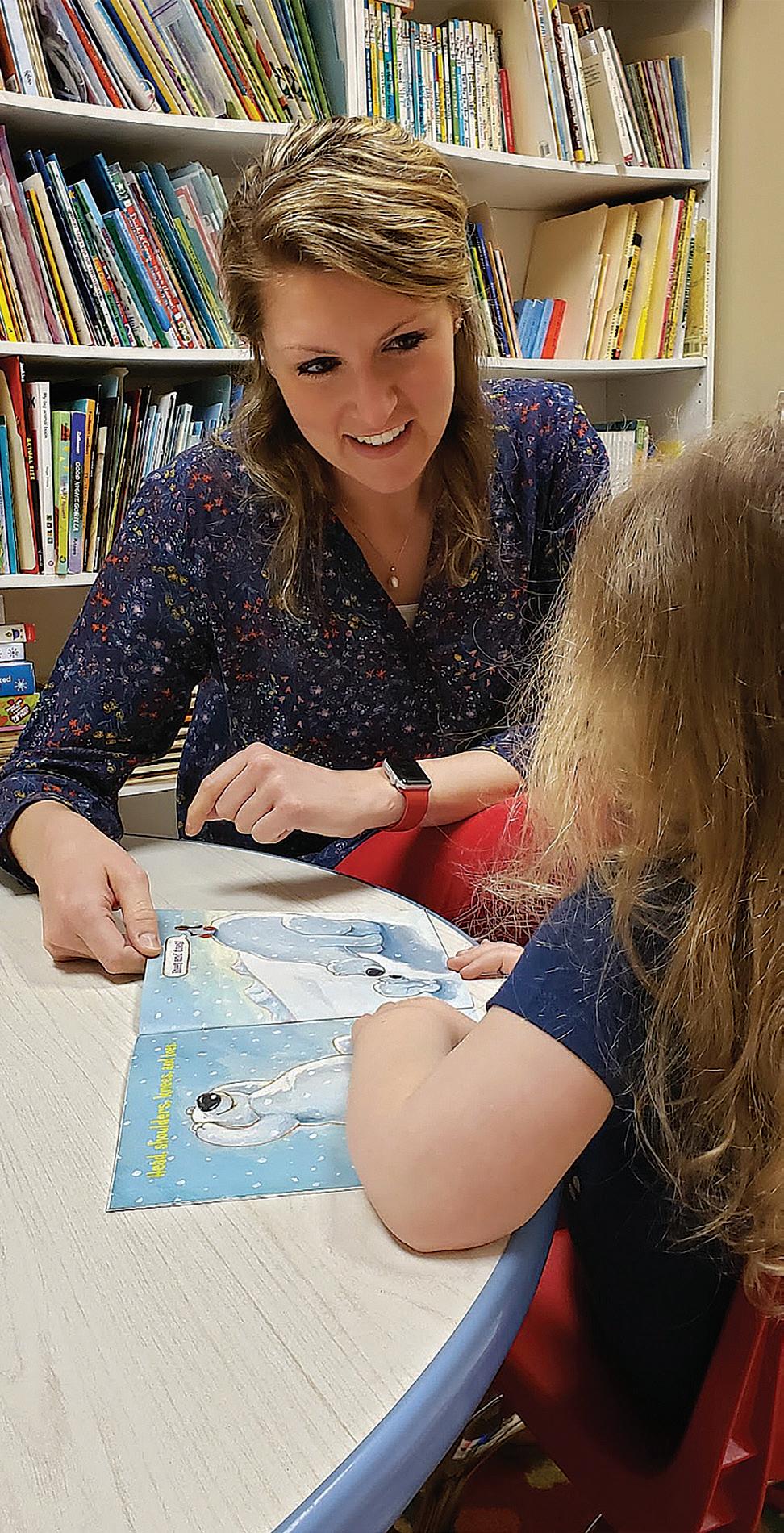
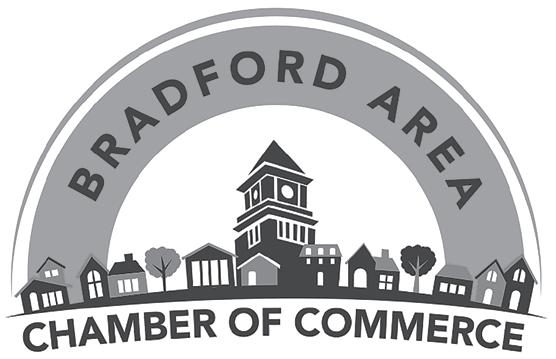





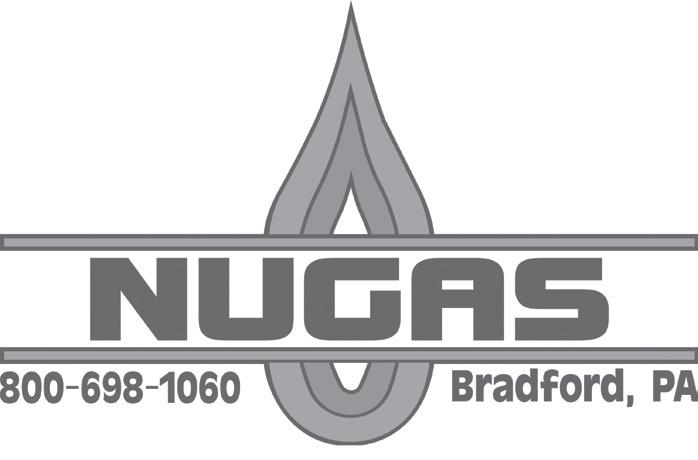

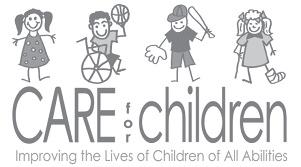
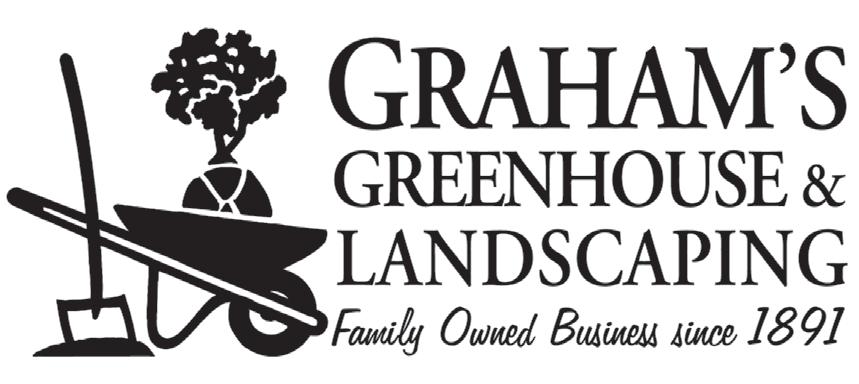

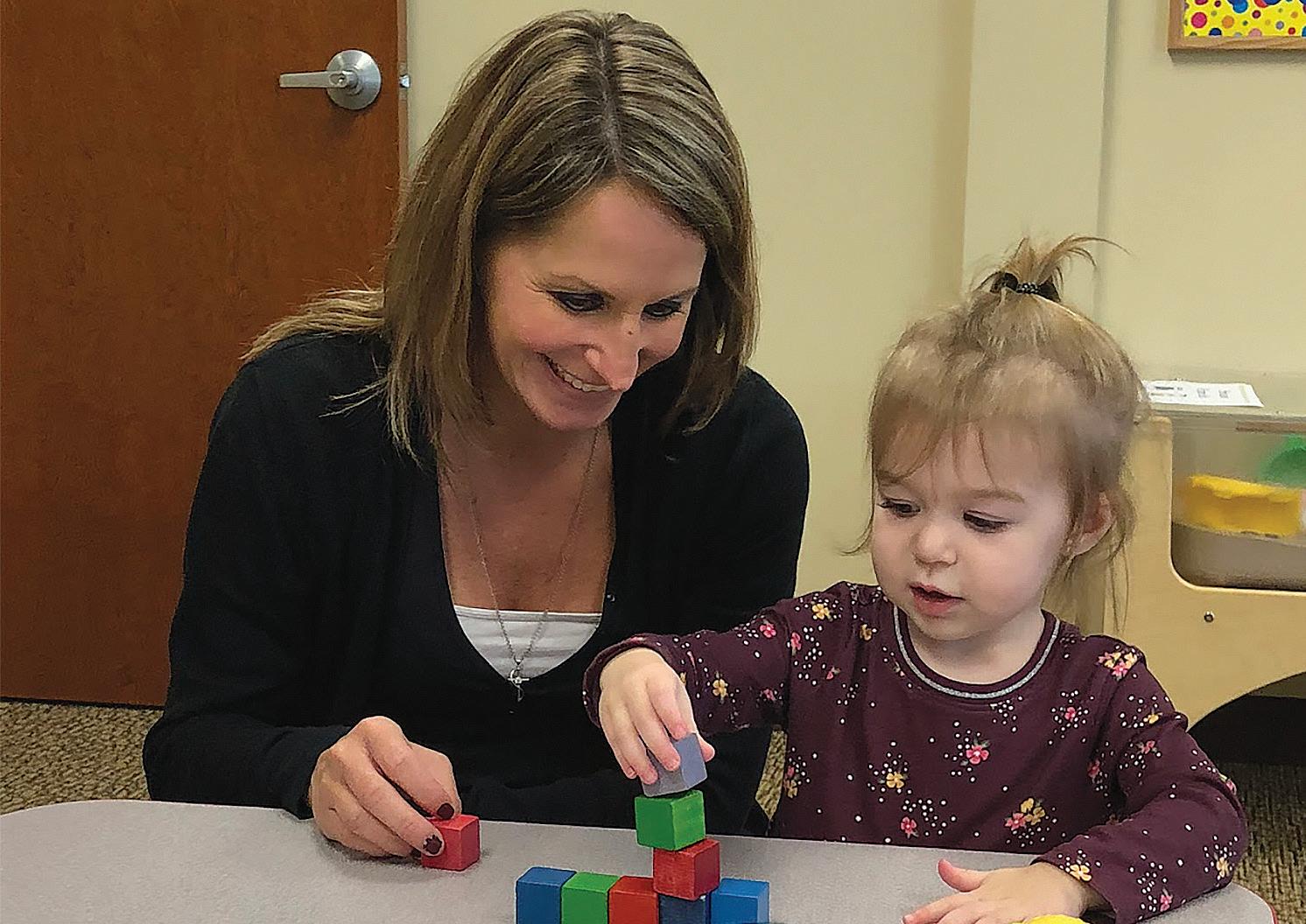
A
and a
was hired to lead family support efforts. With the addition of a social worker, CARE was able to expand and improve the quality of those efforts.
“Meeting the needs of a young child who has special health care needs often places hardships on a family’s emotional, physical, and financial resources,” said Tina Martin, CARE executive director. “No child lives in a vacuum and if we are going to help children reach their full potential, we need to focus on what we can do to bolster family stability.”
The Social Work and Family Support
Services offered at CARE are aimed at providing assessments; identifying family needs, and making connections and referrals to community services and resources that will help meet those needs; parent education and support to help bolster family stability and promote child development; consultation; advocacy; crisis support; community outreach; and positive social and behavioral interventions for the children and families served. These initiatives complement and enhance therapy services and enable CARE to provide family centered services to help children with delays and disabilities.
Joy Haney, MSW, LSW, CARE social worker, reflects “I believe that each individual has the right for equity in our community and to strive toward their dreams. My desire is to journey alongside individuals/families as a trusted professional to
encourage, support, and help bridge the gaps so they can reach their fullest potential.”
Other Pediatric Community Health and Outreach Services provided by CARE include:
• Pro Bono therapy and educational services
• Family Support and Family Engagement programs
• School scoliosis screenings
• Community developmental screenings and screenings for children entering Kindergarten
• Family and school consultative services
• Wheelchair and specialized equipment fittings
• Family training and education
• Provide special assistance for families whose children are in our program with expenses related to hospital stays and medical visits, adaptive equipment, medical supplies, emergency food and clothing, and holiday assistance.








